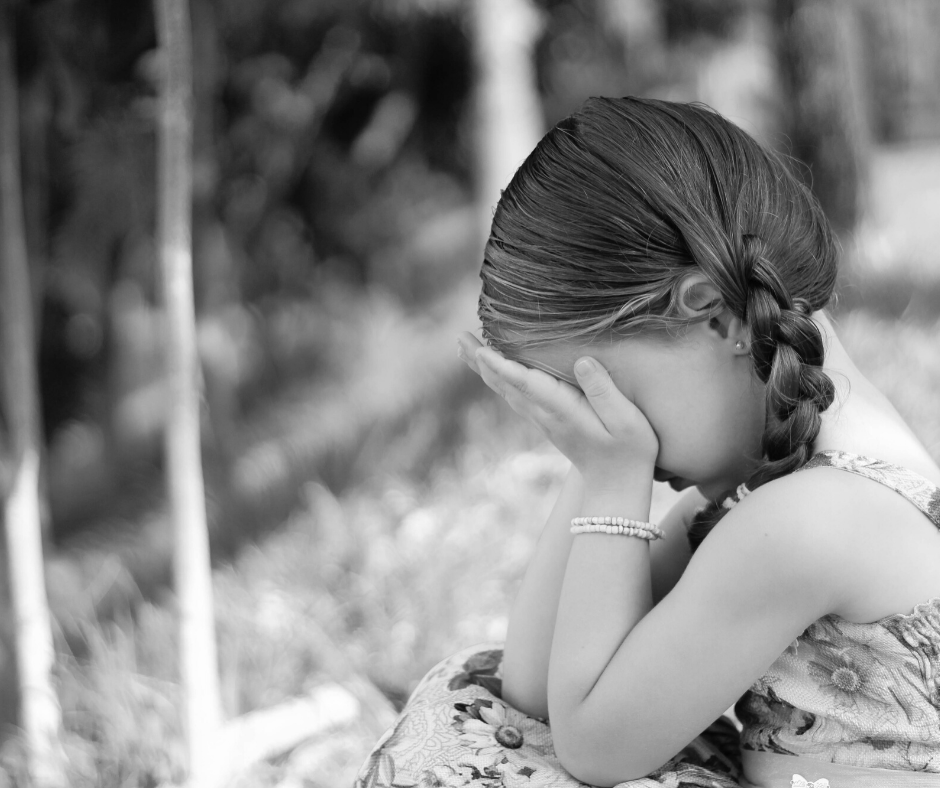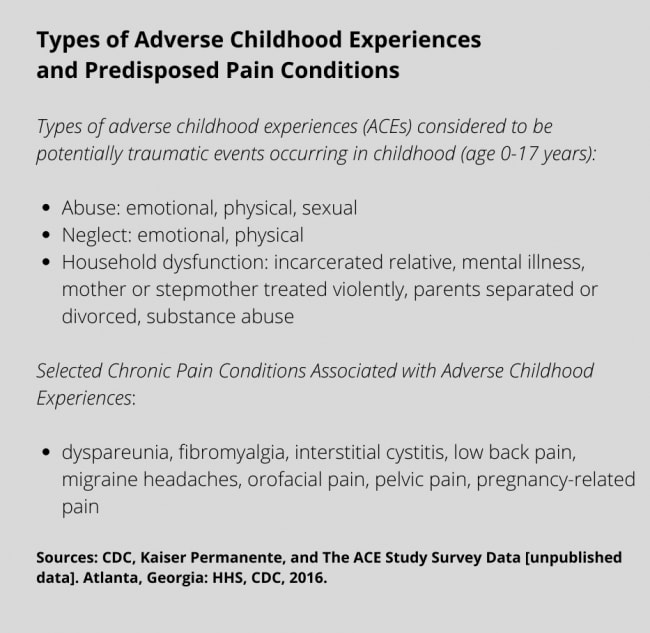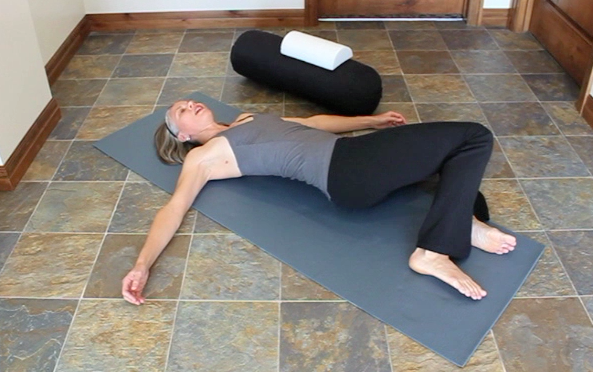| The Adverse Childhood Experiences study was the first longitudinal study of its kind to demonstrate the impact between early trauma and the onset of adult chronic illness, both mental and physical. The researchers, Dr Felitti and Dr Anda recruited over 17,000 people in the Kaiser Permanente Health Care System from 1995-97 with longterm follow up for tracking health outcomes. The results of the study were initially published in the Journal of the American Medical Association in December 2001. (1) The participants were surveyed on trauma oriented questions based on 8 types of trauma and (later they added physical and emotional neglect for a total of 10). |
- Emotional, Physical and Sexual abuse
- Physical and Emotional neglect
- Mother treated violently
- Household substance abuse
- Household mental illness
- Parental separation or divorce
- Incarcerated household member
- There was a definite connection between childhood trauma and adult onset of chronic disease.
- 2/3 of the adults in the study experienced 1 or more of the adverse childhood experience.
- The more ACES a person had, the greater chance of medical, mental and social issues as an adult. With an ACE score of 4 or higher they found an increased risk for hepatitis, chronic lung disease, sexually transmitted infections, heart disease, cancer, diabetes, autoimmune diseases, depression, mental illness, suicide, alcohol, drug & tobacco addictions. People with high ACE scores were more prone to violence, divorce, broken bones, and more medical prescriptions. (2)
As a physical therapist the majority of clients that I work with are in pain. Many clients have had long standing pain in multiple areas, as well as having other symptoms such as depression/anxiety, GI disturbances, overactive bladders, hypothyroidism, migraines, etc. I feel, that as a provider, I have the responsibility to educate and empower my clients to not only get out of pain, but to awaken their body to its full potential. In order to fully heal, rather than putting on a temporary band aid (pharmaceuticals, cortisone injections, massages, hot/ice packs, CBD rubs) it is essential to get to the root. The ACES study, and subsequent "multiple studies worldwide have shown a dose-response relationship between traumatic events in childhood, such as abuse, neglect, or a dysfunctional home, and later development of chronic pain." (3) Not all people are ready or willing to dig to the root. Healing is not comfortable, but the reality is, is that the pains of childhood are alive and well in the tissues of the body. And it is through the body that healing can begin. Are you ready?
Do you want to know your ACES score?
Recommendation of body therapies that can be helpful for healing chronic illness
- Somatic Experiencing
- Sensorimotor Psychotherapy
- EMDR (Eye Movement Desensitization and Reprocessing
- Internal Family Systems
- Biodynamic Cranial Sacral Therapy
- Family Constellations Therapy
- Yoga Therapy
- JAMA. 2001;286(24):3089-3096.
- Felitti VJ, Anda RF, Nordenberg D, Williamson DF, Spitz AM, Edwards V, Koss MP, Marks JS. Relationship of childhood abuse and household dysfunction to many of the leading causes of death in adults: the adverse childhood experiences (ACE) study. American Journal of Preventive Medicine 1998;14:245–258.
- W. Clay Jackson, MD, DipTH. Connecting the Dots: How Adverse Childhood Experiences Predispose to Chronic Pain. Practical Pain Management. 2020;2:24-28.













 RSS Feed
RSS Feed